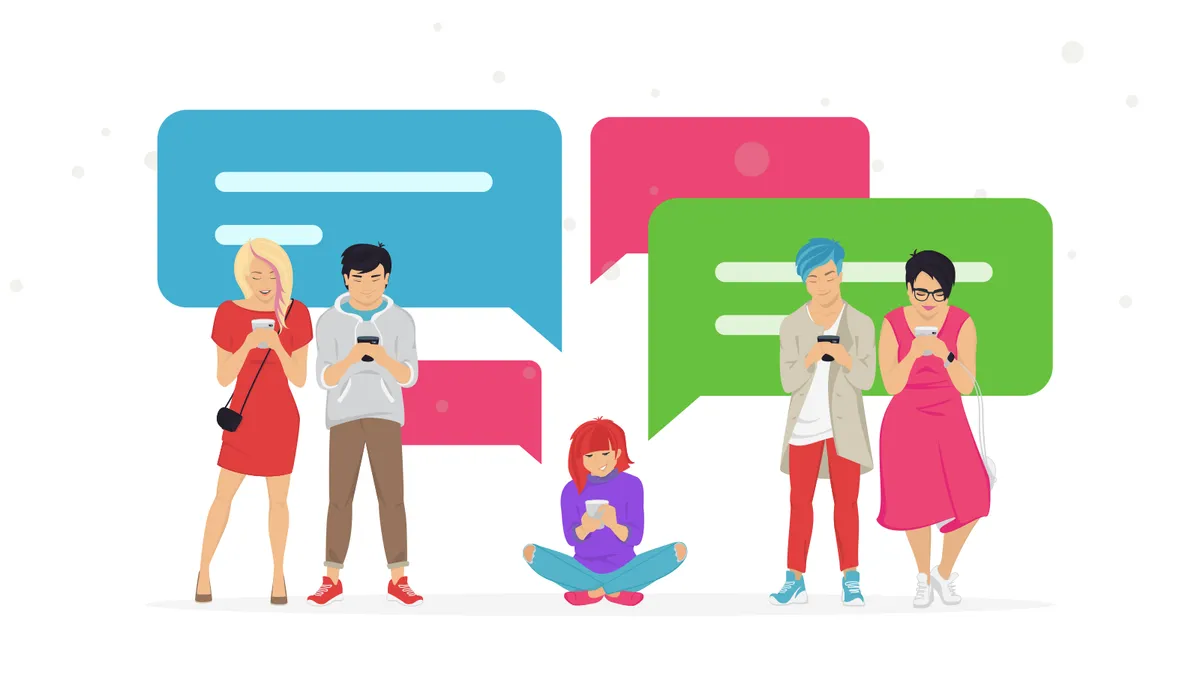Students are seeing the value that chatbots bring to other areas of their lives and overwhelmingly believe that they can benefit their higher ed experience as well.
Ivy.ai's Future of Higher Ed study reports that while 42 percent of students said their school utilized a chatbot, most of those students report overwhelmingly positive experiences with them. Three in every five students evaluated their chatbot experience positively while only nine percent of students described a negative experience with them.
The study is based on an online survey of more than 500 recent college graduates across the United States, to learn their viewpoints on a variety of topics such as communication preferences, viewpoints on technology, learning styles and more. Ivy.ai, an enterprise chatbot and live chat platform for institutions of higher education, released the findings on Sept. 13 to help administrators better prepare for the year ahead.
Considering that students are using chatbots in their everyday lives for shopping, healthcare and customer service, Ivy.ai's research found that students are more accustomed to communicating with chatbots. When it comes to finding basic information, recent college graduates report the experience of using one to be less cumbersome and frustrating than searching an institution's website or waiting to hear back from a contact center.
Ninety-four percent of students with chatbots at their institution said utilizing one was valuable or extremely valuable while enrolled at their college or university.
"Chatbots are much more robust today than they were even a couple of years ago," VP of Partnerships Mary Frances Coryell said. "Students no longer find interacting with a chatbot to be strange or awkward since they're using them in other areas of their lives. They now expect to get answers to questions on their own at any time of day without any wait time."
Unlike previous generations, today's college students grew up with computers and phones that allowed them to access information at an earlier age and with greater ease than Millennials at an early age. In addition, they are accustomed to chatting via Facebook Messenger, SMS and WhatsApp, making this type of communication more intuitive than ever before.
As a result, they're willing to sacrifice more privacy in exchange for more convenience. In fact, privacy concerns are generally seen as a non-factor for students of this generation.
Ivy.ai's Future of Higher Ed report says that 57 percent of students answered they would willingly share personal data with their institution if it meant getting more individualized support. However, Coryell cautions against taking this data as a green light for violating student privacy expectations. Rather, it is imperative for institutions to use that data to better the experience.
"Institutions should not only be transparent about what data they're collecting and how they're using it," Coryell said. "They should also ensure they are using data to ultimately better the student experience. Whether that's proactively communicating application deadlines or helping students find classes that better align with their interests, students are going to expect that institutions will provide an experience that closely resembles Amazon in the near future."
As student expectations continue to rise, institutions will be expected to answer questions before they even arise, according to the report. This means delivering more timely content and individualized touchpoints for students across the academic lifestyle. If institutions are willing to provide this level of personalization, then the opportunities to mine student data are endless.
Higher education professionals can find insights and recommendations from the report by downloading the report from Ivy.ai.










